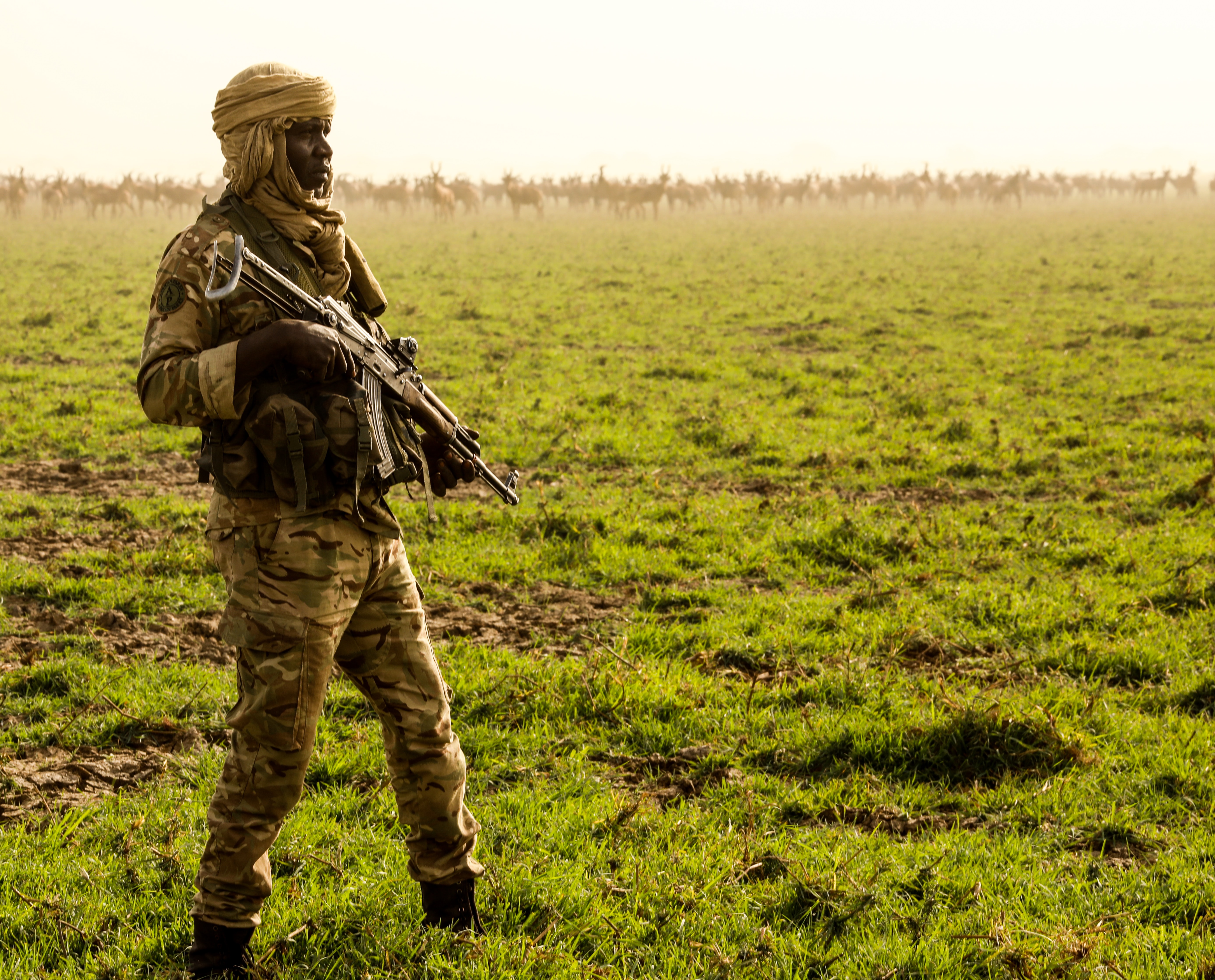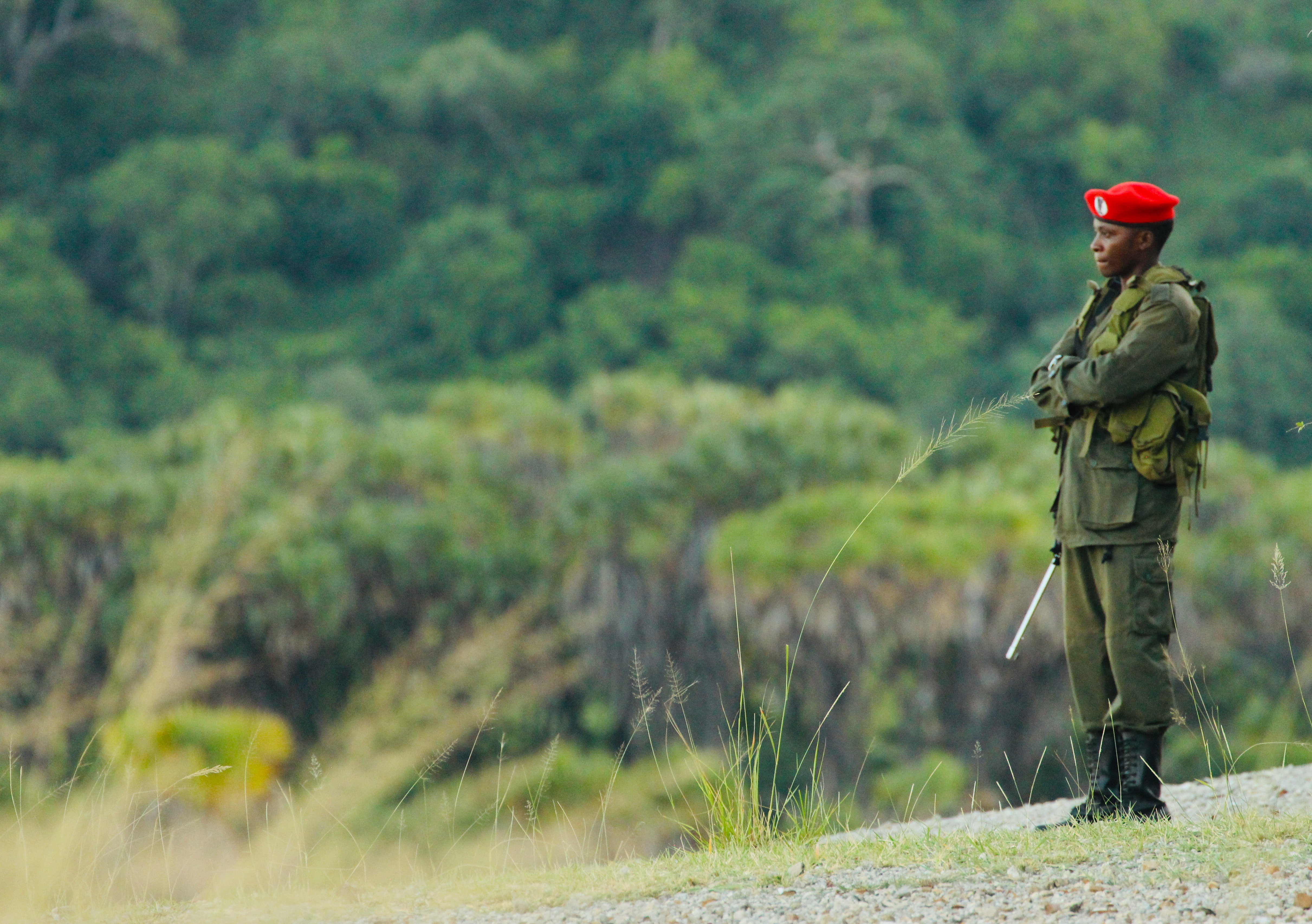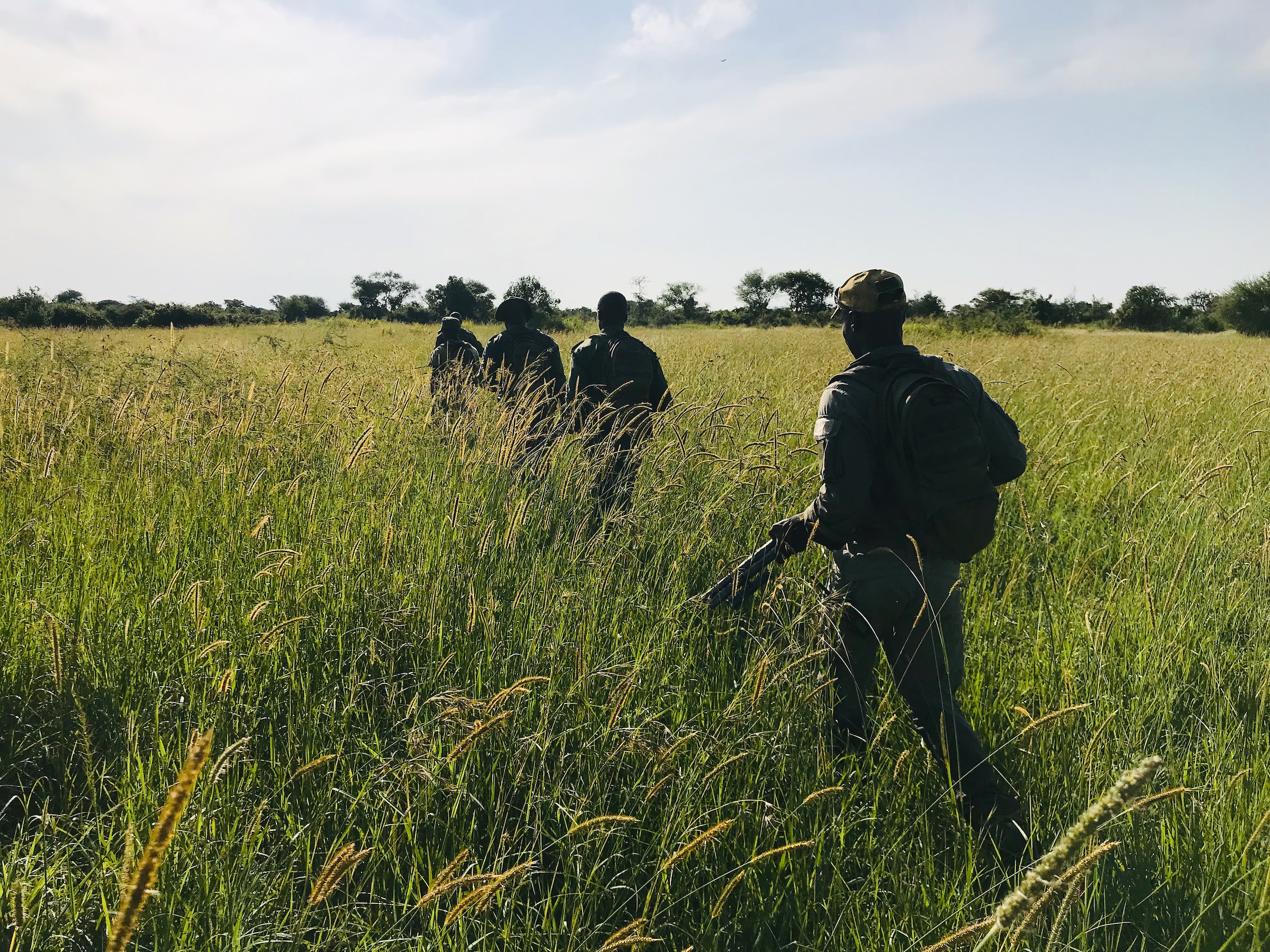The men and women serving as rangers in Africa’s vast network of conservation areas play a critical role in protecting the continent’s biodiversity. Often underpaid and underappreciated, Africa’s rangers have to work in extremely difficult and dangerous conditions, frequently facing attack by armed poachers. Rangers play a vital role in lion conservation by helping to protect lions, their prey, and the habitats on which lions depend.
A high proportion of the funding that is issued by the LRF ends up supporting the work of rangers in the field, in one way or another. For example, 53% of LRF funding invested so far has gone into supporting the management of underfunded protected areas. In most cases, such funding is used in part to help pay, train, and equip rangers to make their work more effective and safe. The LRF contributes to the salaries of at least 600 rangers and has supported the equipping and supply of rations to a similar number. This support has been critically important during the COVID-19 pandemic. Funding for conservation has declined during the pandemic, while pressures on nature have increased. The loss of revenues from tourism has created the grave risk that rangers might be laid off, or that there will be insufficient funds for ranger operations and deployments, which would leave Africa’s wildlife terribly exposed.
The LRF is hard at work distributing funds to key landscapes to ensure that essential conservation services continue and that rangers remain in the field. To that end, the LRF has invested nearly $9 million in 2020 to help rangers protect threatened wildlife.




